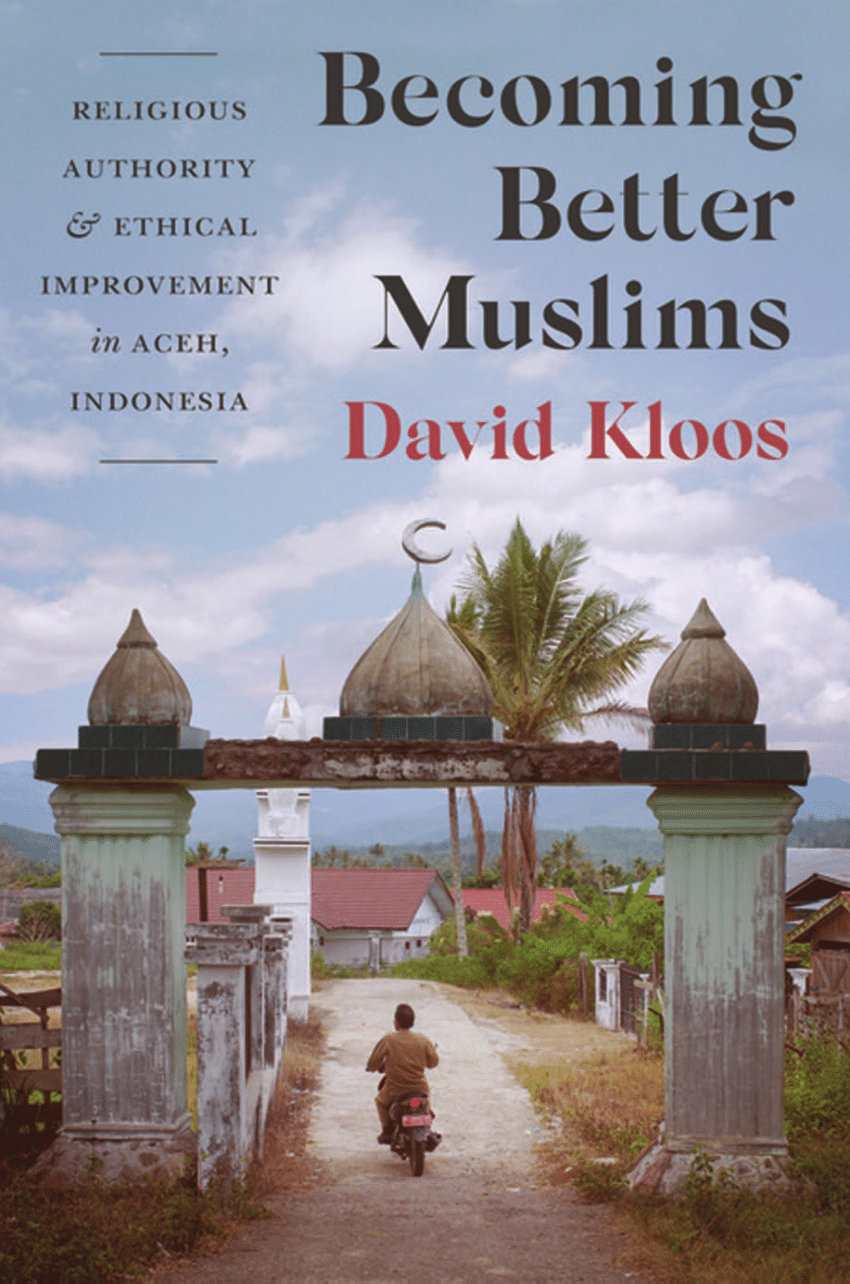Becoming Better Muslims: Religious Authority and Ethical Improvement in Aceh, Indonesia – David Kloos

Author: David Kloos
Publisher: Princeton University Press
Year of Publication: 2017
Print Length: 240 pages
Genre: Non-Fiction / Religious Studies, Islamic Studies / Reflection & Self-Development
Topic: Activism, Belief & Disbelief, Community, Culture & Society, Ethics & Morality, Everyday Life, History, Islam, Religious Authority, Solidarity, Violence & Mass Violence, War
How do ordinary Muslims deal with and influence the increasingly pervasive Islamic norms set by institutions of the state and religion? Becoming Better Muslims offers an innovative account of the dynamic interactions between individual Muslims, religious authorities, and the state in Aceh, Indonesia. Relying on extensive historical and ethnographic research, David Kloos offers a detailed analysis of religious life in Aceh and an investigation into today’s personal processes of ethical formation.
Aceh is known for its history of rebellion and its recent implementation of Islamic law. Debunking the stereotypical image of the Acehnese as inherently pious or fanatical, Kloos shows how Acehnese Muslims reflect consciously on their faith and often frame their religious lives in terms of gradual ethical improvement. Revealing that most Muslims view their lives through the prism of uncertainty, doubt, and imperfection, he argues that these senses of failure contribute strongly to how individuals try to become better Muslims. He also demonstrates that while religious authorities have encroached on believers and local communities, constraining them in their beliefs and practices, the same process has enabled ordinary Muslims to reflect on moral choices and dilemmas, and to shape the ways religious norms are enforced.
Arguing that Islamic norms are carried out through daily negotiations and contestations rather than blind conformity, Becoming Better Muslims examines how ordinary people develop and exercise their religious agency.
Table of Contents
List of Illustrations
Preface and Acknowledgments
Note on Spelling, Transliteration, and Italicization
Map of Aceh
Introduction: Inner Islam and the Problem of Acehnese Exceptionalism
A Narrative of Violence and Piety
Religious Agency and Ethical Improvement: An Interactive Approach
Ordinary Ethics, Moral Failure, and the Sense of a Life Unfolding
Islam in Aceh as a Subject of Study
Fieldwork
Organization of the Book
1 History and the Imagining of Pious Aceh
Reconfigurations of Authority
Islam and the Imperial War
Belief and Practice in a Society in Flux
Islamic Activism
Violence and the Transformation of the Public Sphere
Conclusion
2 The Limits of Normative Islam
Occupation, Revolution, Rebellion
Exemplars of Reform
The Limits of Normative Islam
Villages in the New Order
The Lheueh Dispute
Conclusion
3 Village Society and the Problem of Moral Authority
Beyond the Politics of Violence and Grief
A Crisis of Solidarity
Generation and the Perception of Moral Authority
The Theft from the Dayah
“My Father Is a Good Man but Too Stubborn”
Village Politics and the Reconceptualization of Local Leadership
Conclusion
4 Islamic Scripturalism and Everyday Life after the Disaster
Routines and Debates in a Tsunami-Affected Neighborhood
A Lost Zeal for Business
Heaven Lies under Mother’s Feet
Money, Piety, and Senses of Community
Age, Life Phase, and the Inward Turn
Conclusion
5 Becoming Better Muslims: Sinning, Repentance, Improvement
Sinning, Shariʿa, and the Moral Pressures of the Postwar,
Post-tsunami Moment
Early Life Discipline, Older Age Consciousness: The Repentance
of Rahmat
The Responsibilities of Yani
Aris, Indra, and the Morality of Failure and Success
The Knowledge of Sins: Competing Models of Ethical Improvement?
Conclusion
Conclusion
Notes
Glossary and Abbreviations
References
Index

David Kloos is a senior researcher and a member of the KITLV Management Team (Portfolio Research). His work is characterized by a combination of historical and anthropological research methods. He is interested in religion, gender, violence, colonialism, knowledge formation, visual methods, and the social and political aspects of climate change.
Source: https://www.kitlv.nl/researchers-kloos/
More from David Kloos in this library, click here.
